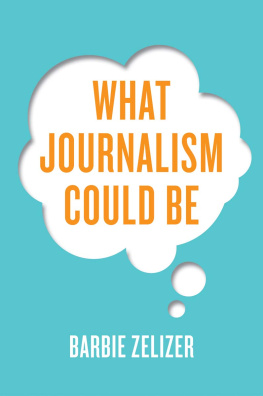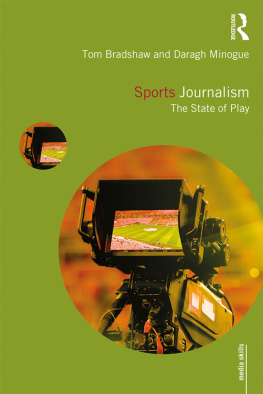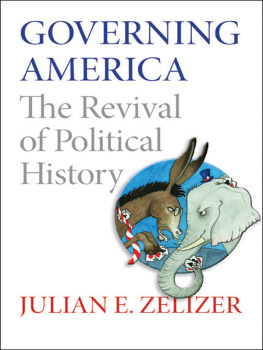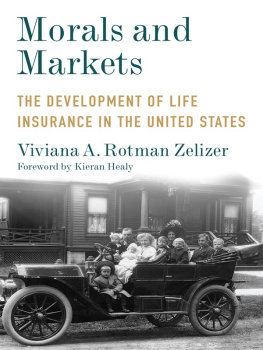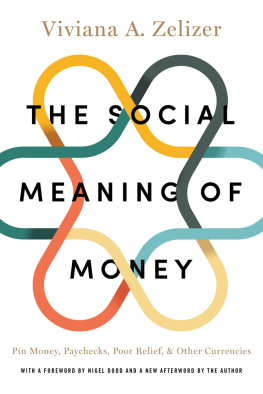Contents
Guide
Pages

What Journalism Could Be
Barbie Zelizer
polity
Copyright Barbie Zelizer 2017
Cues for Considering Section I, Section II, Section III Barbie Zelizer, Jennifer Henrichsen & Natacha Yazbeck
The right of Barbie Zelizer to be identified as Author of this Work has been asserted in accordance with the UK Copyright, Designs and Patents Act 1988.
First published in 2017 by Polity Press
Polity Press
65 Bridge Street
Cambridge CB2 1UR, UK
Polity Press
350 Main Street
Malden, MA 02148, USA
All rights reserved. Except for the quotation of short passages for the purpose of criticism and review, no part of this publication may be reproduced, stored in a retrieval system, or transmitted, in any form or by any means, electronic, mechanical, photocopying, recording or otherwise, without the prior permission of the publisher.
ISBN-13: 978-1-5095-0790-0
A catalogue record for this book is available from the British Library.
Library of Congress Cataloging-in-Publication Data
Names: Zelizer, Barbie, author.
Title: What journalism could be / Barbie Zelizer.
Description: Cambridge, UK; Malden, MA: Polity Press, 2016. | Includes bibliographical references and index.
Identifiers: LCCN 2016016611 (print) | LCCN 2016029002 (ebook) | ISBN 9781509507863 (hardcover : alk. paper) | ISBN 1509507868 (hardcover: alk. paper) | ISBN 9781509507870 (pbk. : alk. paper) | ISBN 1509507876 (pbk. : alk. paper) | ISBN 9781509507894 (mobi) | ISBN 9781509507900 (epub) Subjects: LCSH: Journalism.
Classification: LCC PN4731 .Z455 2016 (print) | LCC PN4731 (ebook) | DDC 070.4--dc23
LC record available at https://lccn.loc.gov/2016016611
The publisher has used its best endeavors to ensure that the URLs for external websites referred to in this book are correct and active at the time of going to press. However, the publisher has no responsibility for the websites and can make no guarantee that a site will remain live or that the content is or will remain appropriate.
Every effort has been made to trace all copyright holders, but if any have been inadvertently overlooked the publisher will be pleased to include any necessary credits in any subsequent reprint or edition.
For further information on Polity, visit our website: politybooks.com
Acknowledgments
The author would like to acknowledge the kind permission of publishers to reproduce and rework chapters (listed here under their original titles) from the following publications:
.
Adapted from Barbie Zelizer, Taking Journalism Seriously. Thousand Oaks: Sage, 2004. Reproduced by permission.
: On Having Been There: Eyewitnessing as a Journalistic Key Word. Critical Studies in Media Communication, 24(5), December 2007, 40828. Reproduced by permission of Taylor and Francis.
: On the Shelf Life of Democracy in Journalism Scholarship. Journalism 14(4), June 2013, 45973. Reproduced by permission of Sage.
: When Practice is Undercut by Ethics. In Nick Couldry, Mirca Madianou and Amit Pinchevsky (eds.), Ethics of Media. London: Palgrave Macmillan, 2013, 31737. Reproduced by permission of Palgrave Macmillan.
: Journalism and the Academy. In Karin Wahl Jorgensen and Thomas Hanitzsch (eds.), Handbook of Journalism Studies. Mahwah, NJ: Lawrence Erlbaum, 2008, 2941.
Adapted from Barbie Zelizer, Taking Journalism Seriously. Sage, 2004. Reproduced by permission.
: Journalism in the Service of Communication. Journal of Communication, February 2011, 127. Reproduced by permission of Wiley.
: When Facts, Truth, and Reality Are God-Terms: On Journalisms Uneasy Place in Cultural Studies. Communication and Critical/Cultural Studies, 1(1), March 2004, 10019. Reproduced by permission of Taylor and Francis.
: Journalists as Interpretive Communities. Critical Studies in Mass Communication, 10, September 1993, 21937. Reproduced by permission of Taylor and Francis.
: The Culture of Journalism. In James Curran and Michael Gurevitch (eds.), Mass Media and Society (4th edition). London: Edward Arnold (Bloomsbury Academic), 2005, 198214. Reproduced by permission of Bloomsbury Academic, an imprint of Bloomsbury Publishing Ltd.
: When War is Reduced to a Photograph. In Stuart Allan and Barbie Zelizer (eds.), Reporting War: Journalism in Wartime. Abingdon, Oxon: Routledge, 2004, 11535. Reproduced by permission of Routledge.
: Tools for the Future of Journalism. Ecquid Novi: African Journalism Studies, July 2013. Reproduced by permission of Taylor and Francis.
Imagining Journalism
Albert Einstein is rumored to have said that logic can take people from A to B, but imagination will take them everywhere. What Journalism Could Be draws from that sensibility. Imagining journalism into its margins, across its corners and beyond its limitations is an exercise that invites the accommodation of change. It calls on scholars of journalism to interrogate the commonly accepted and generally unchallenged contours of journalisms practical accomplishment and intellectual conceptualization. And it calls on journalists to consider the possibilities of novelty and transformation, while being mindful that the risks this entails may complicate an already tenuous landscape.
Why should we rethink journalism today? The change in its environment suggests that doing so might be fruitful, but not in any immediately obvious or predictable fashion. From moves into automated news copy, user-generated content, wearables and virtual reality to newspaper closures and layoffs, many presume that journalism is currently at its point of exhaustion. The lines of that reasoning, embraced by many journalists and journalism scholars alike, are clear: they rest upon stress points of many kinds that offer either spirited proclamations of how the news must move with the times or depressed lamentations of what has been irretrievably lost. One side the enthusiasts sees change as the omnipotent enabler of all things new, the other the naysayers as the elimination of a legacy gone too soon. Neither invokes an incremental understanding of change as reciprocal give and take, adjustment, modification or turn-taking. And yet each of these activities regularly comes to the fore when change is on the horizon.
This book is situated in-between the naysayers and the enthusiasts. I argue that change in journalism can be embraced by considering it as a gradual back-and-forth between positions, where journalisms practitioners, observers and analysts might imaginatively assess both what change can bring and how it resonates with where journalism has been. By accommodating new ways of understanding tensions in journalism, of thinking disciplinarily about journalism and of conceptualizing journalistic practice, this book thus charts a path toward a more textured environment through which to imagine what journalism could be.
Imagination does not inhabit journalism without qualification. A slew of factors historical, social, cultural, economic, political, moral, ideological, technological has separated it from most understandings of the news. An alignment with narrow understandings of modernity and reason, an identity that highlights its preoccupation with realism, an institutional neighborhood whose most proximate residents politics or the economy privilege truth-telling over making-up, a university environment that accommodates its relevance for the public good are some of the variables that have pushed imagination aside. Though imaginative thinking invariably slips into theories and discussions of journalism Adam (1993, 1), for instance, defined journalism as a product of the imagination, while Schudson (1996, 96) observed how making [news] is not faking, not lying, but... it cannot be done without play and imagination by and large thinking about journalism in conjunction with imagination has been confined to the art of narrative storytelling (Fishkin, 1985).

